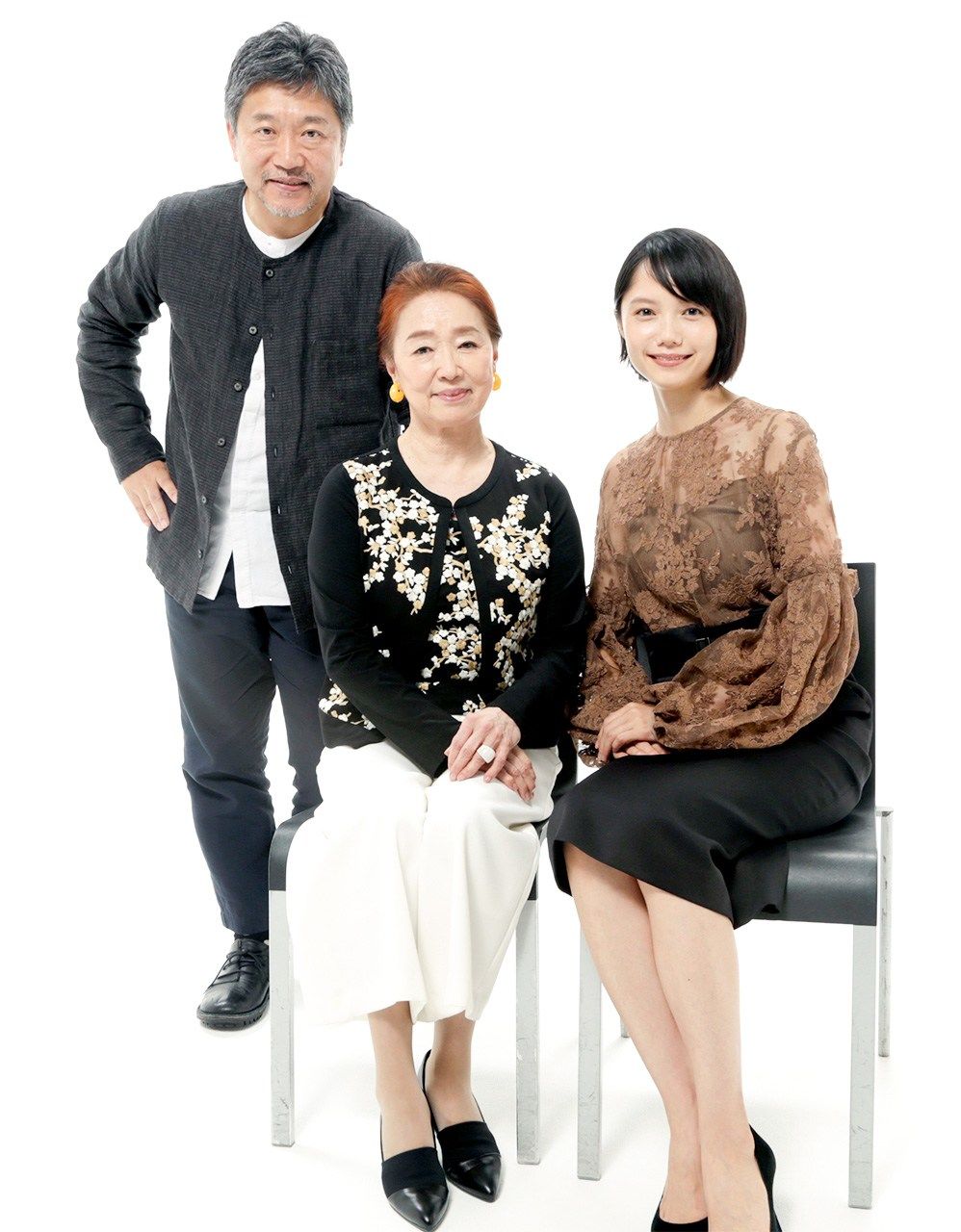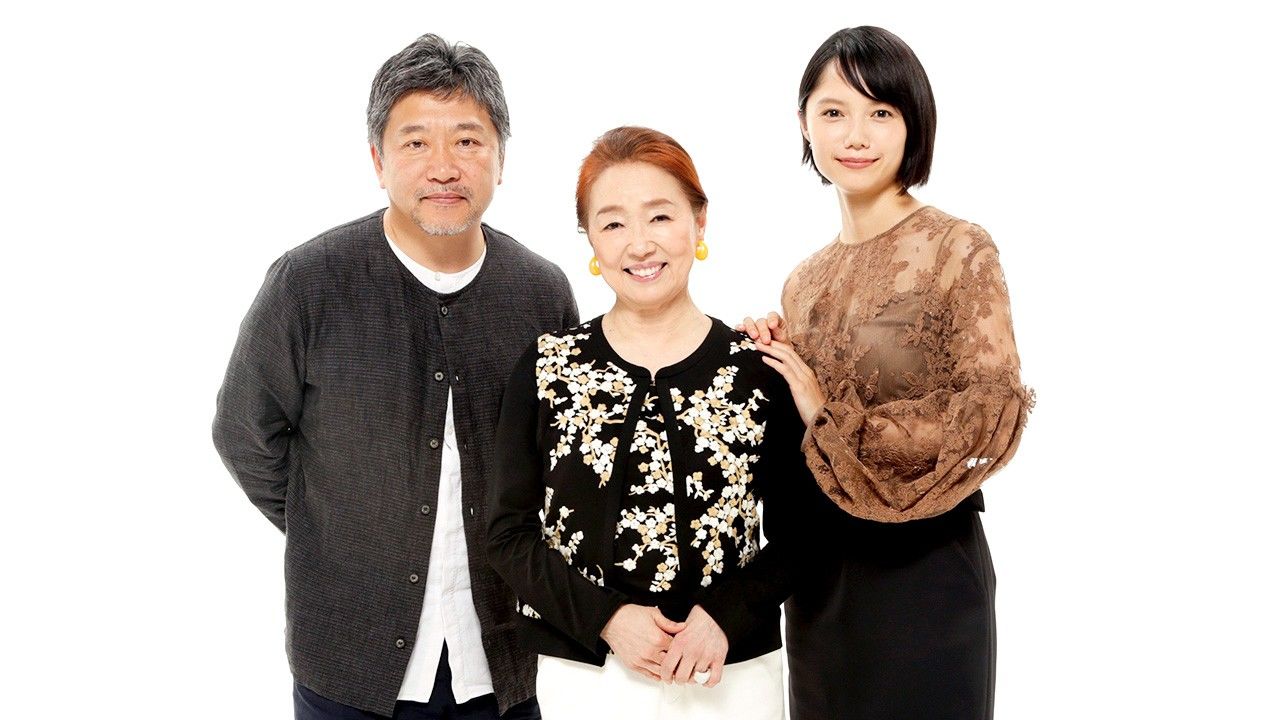
Japanese Director Koreeda Hirokazu Heads to France to Tell “The Truth”
Cinema Culture- English
- 日本語
- 简体字
- 繁體字
- Français
- Español
- العربية
- Русский
A Long Gestation
Film director Koreeda Hirokazu is at the height of his profession. His latest creation, The Truth, was selected to open the Venice Film Festival, the first such honor for a Japanese director. Shot entirely in France, the project is Koreeda’s first venture overseas and saw him direct cinema legends Catherine Deneuve and Juliette Binoche. We recently sat down with the direction to talk about what led him to step out his comfort zone and film with an entirely foreign-language cast and crew.
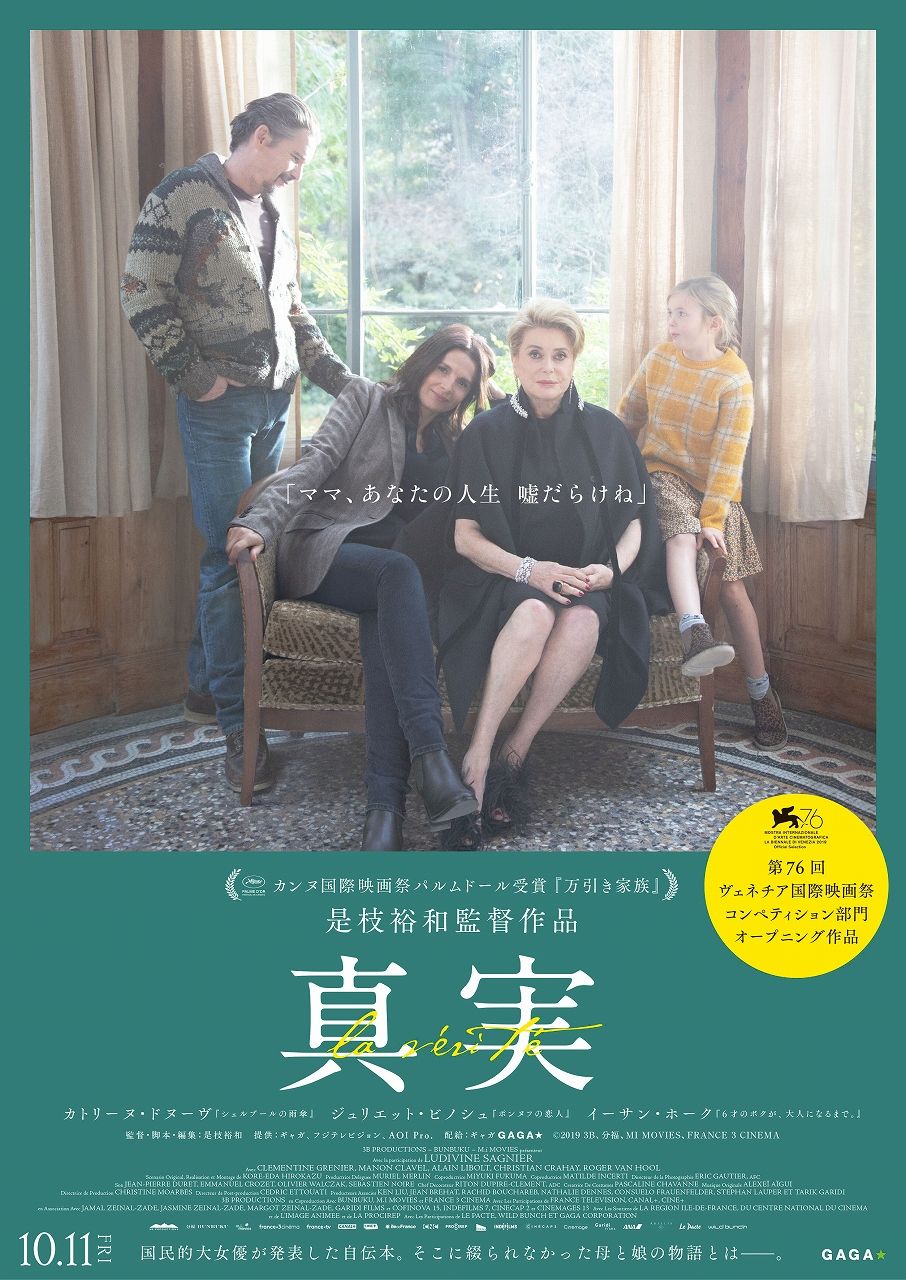
©2019 3B-Bunbuku-MI MOVIES-FRANCE 3 CINEMA
Koreeda says the first spark of an idea for the project came in February 2011, when Binoche visited Japan. The pair have known each other for many years, and during Binoche’s stay they promised to make a film together one day. Binoche perhaps imagined a project set in Japan, but the prospect of filming with the French star inspired bigger ideas in Koreeda—if he was going to shoot such a renowned artist, why not film the entire project in France with a French cast and crew? The concrete idea for the plot came to him in the autumn of 2015, on a flight back from France.
The story would feature a famous actress in her later years who releases an autobiography titled The Truth that is full of lies. Even at this early stage, Koreeda knew that he wanted Deneuve to play the part of the aging star Fabienne, with Binoche playing her daughter Lumir and the American actor Ethan Hawke as Lumir’s husband. Everything started from this remarkably complete initial idea.
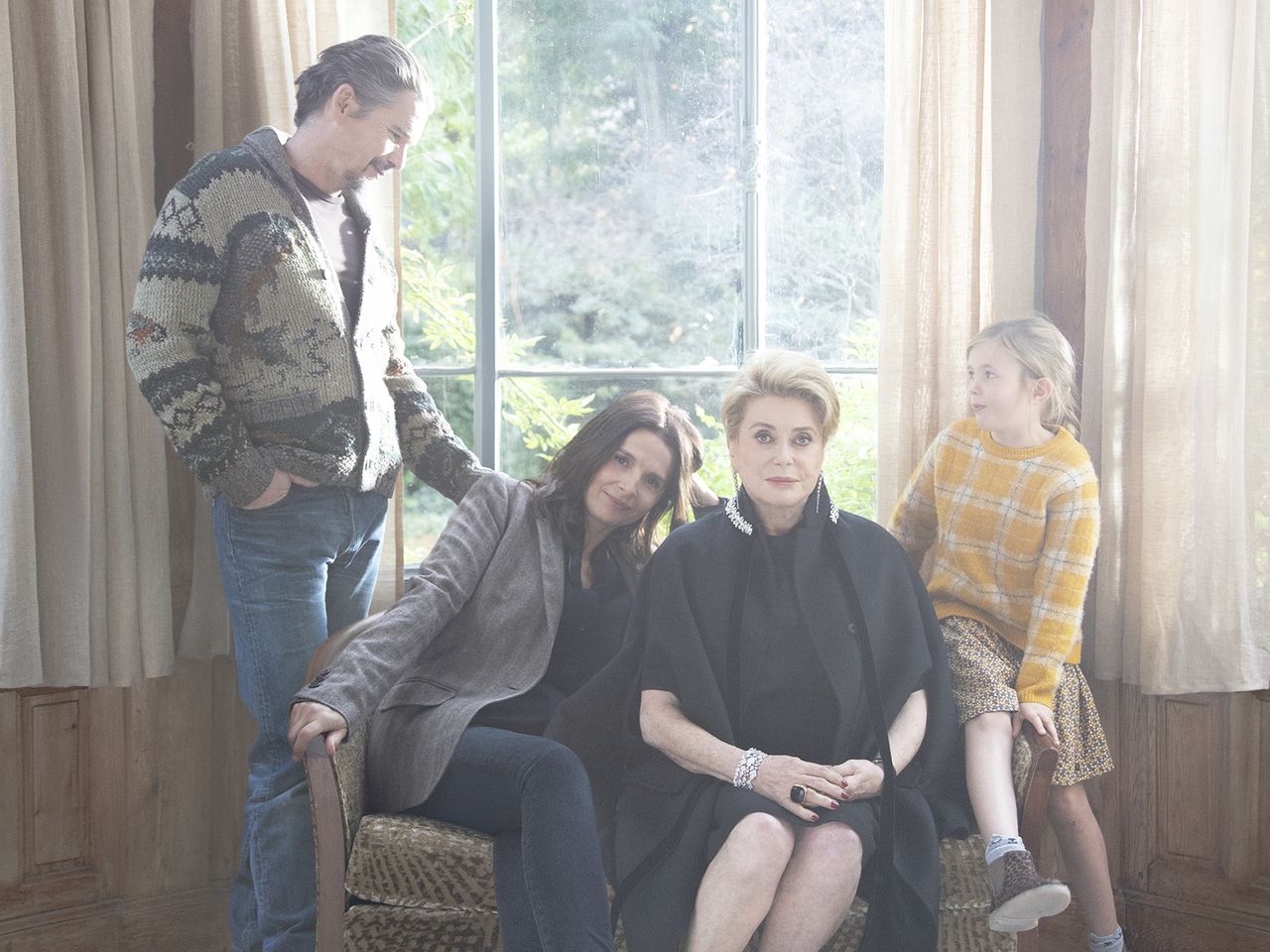
The Truth (© 2019 3B-Bunbuku-MI Movies-France 3 Cinema)
From there, Koreeda expanded the story and started taking steps to make the project a reality by first contacting Binoche and then Deneuve. He fleshed out his portrait of the main character based on hints and observations gained from time spent talking to Deneueve in person. After preliminary approaches to Hawke, Koreeda flew directly to New York from Cannes after claiming the Palme d’Or for The Shoplifters, a success that probably helped ensure the negotiations went smoothly.
Once the remainder of the cast and crew were decided, the next crucial choice was finding a site to shoot. Location was particularly significant on a project like this as so much of the story unfolds in one setting. Eventually, the team settled on a large house with a view of an overland section of the Paris Métro and an extensive garden—a rarity for a place so close to the center of the city. It was the perfect setting for the residence of a successful film actor.
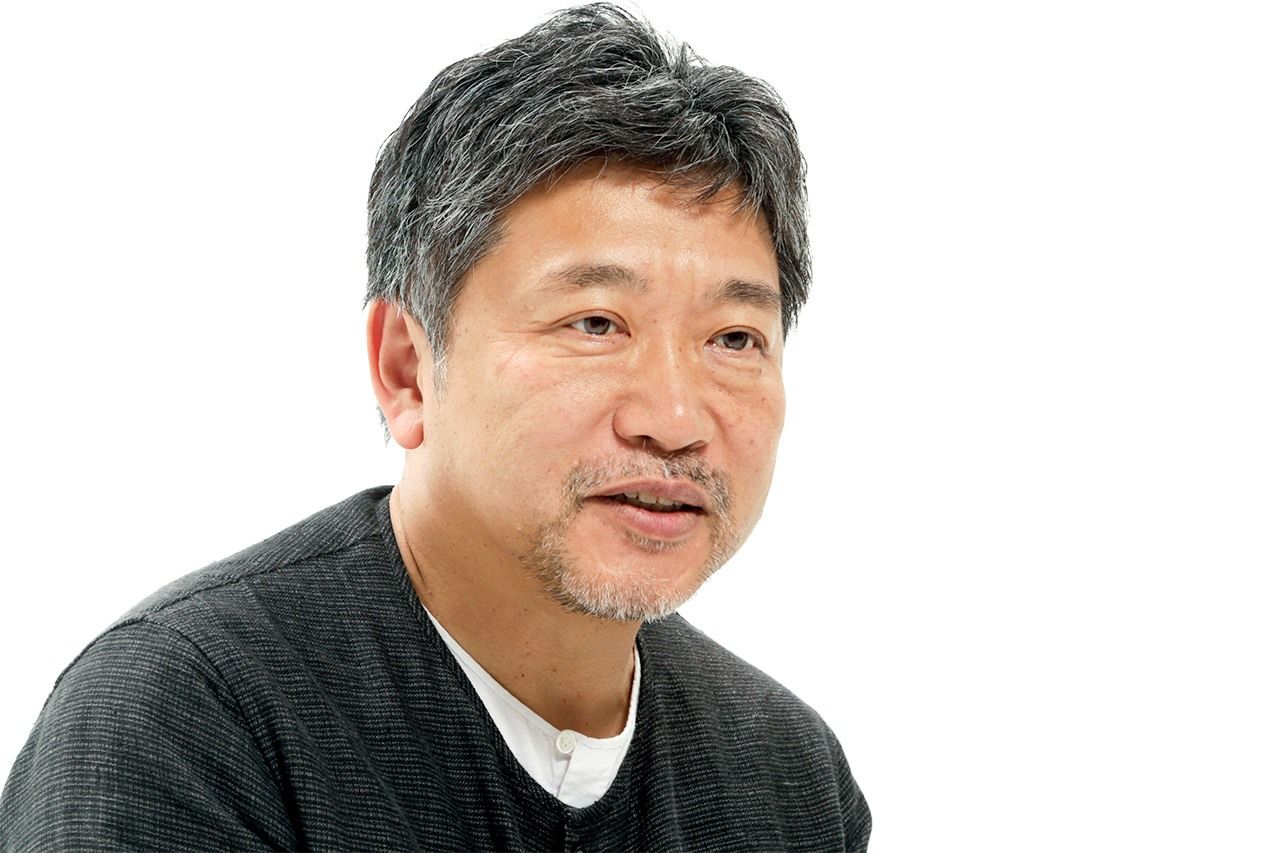
Film director Koreeda Hirokazu.
According to Koreeda, to the unique flavor of the location helped shape the script. “After finishing writing the screenplay, I stayed a night in the house alone and walked through the residence reading the lines aloud,” he recounts, chuckling at how he must have looked if someone had seen him. As he went from room to room, he realized that the space was larger than he had imagined. “I found when walking from the living room into the kitchen or from the kitchen to the back door that the lines finished before I got to wherever I was going.” The discovery forced Koreeda to write more lines to fit the space. “When the script was translated into French, though, the length of the lines changed again, and I had to do more fine tuning. It was extremely important to get it just right, so I spent a lot of time on it. It was perhaps the most enjoyable part of the process—but also the most difficult.”
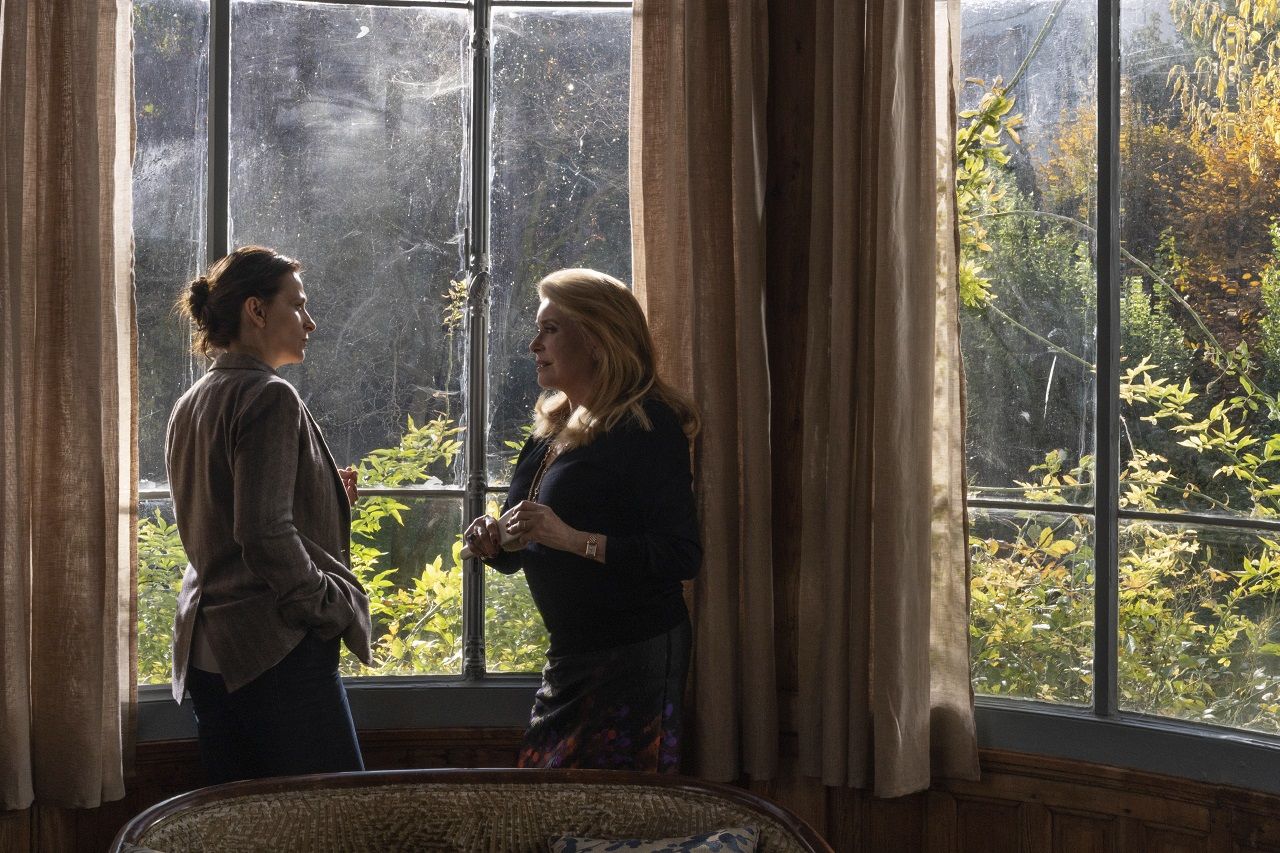
Juliette Binoche (left) and Catherine Deneuve. (photo L. Champoussin ©© 2019 3B-Bunbuku-MI Movies-France 3 Cinema)
In this way, the pieces gradually fell into place until Koreeda had everything he needed to realize his dream of shooting a film set in France. Apart from the English lines spoken by Ethan Hawke’s character, the entire script was in French. What made the film different from any other French production was the simple fact that Koreeda was the writer and director and that it starred the duo of Deneuve and Binoche, a team no French director had ever brought together before. For Koreeda, though, it was business as usual.
“It never occurred to me to impose my own style or personality onto the film,” he insists. “That’s something that happens naturally—or not, as the case may be. It can’t be forced.” Koreeda says he did not feel any particular pressure to make his film appear “French”—just as he would be disinclined to make a film seem “Japanese.” Instead, it was business as usual for director. “I was preoccupied with the same thoughts as when shooting in Japan. Standard things like how to bring out the appeal of the actors, how to get them to respond and react convincingly to one another as an ensemble, and how to get the best out of our location—that’s all.”
The Truth starts when Fabienne, a cinema star whose career spans a half century, publishes her autobiography. To help her mark the event, her daughter Lumir returns to France for the first time with her American husband Hank and young daughter. Lumir is working as a scriptwriter in New York, where Hank is an actor in television dramas. Fabienne is about to start a new film, one that will see her work with Manon (Manon Clavel), an up-and-coming young actress said to be the reincarnation of Fabienne’s close friend and rival who died at a young age in tragic circumstances.
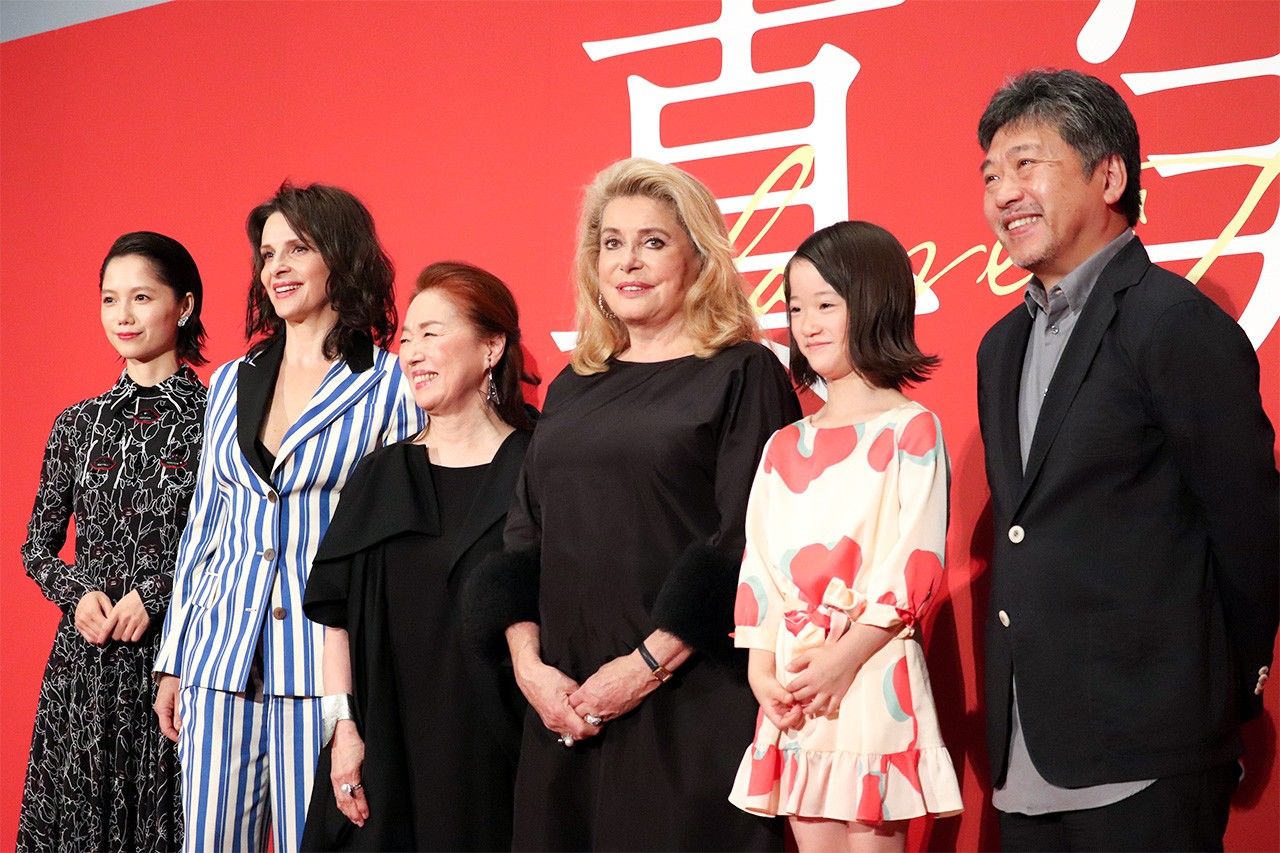
The stars and director of The Truth are joined by Japanese voice actors at the premiere of the film October 3 at Tōhō Cinemas, Roppongi Hills, Tokyo. From left: Miyazaki Aoi, Juliette Binoche, Miyamoto Nobuko, Catherine Deneuve, Sasaki Miyu, and Koreeda Hirokazu. (© Watanabe Reiko.)
Deneuve: The Grande Dame of French Cinema
The Truth is a finely drawn human drama that unfolds through the dialogue of its characters. Making this possible is the tour de force performance by Deneuve. Her character is a typical prima donna, a great actress interested only in her craft—and herself—who speaks her mind with little thought to the feelings of those around her. Her saving grace, though is her dry humor that makes it impossible for the audience to resent her completely. Koreeda spoke about Deneuve’s role in the new film. He was joined in the interview by Miyamoto Nobuko and Miyazaki Aoi who voiced the parts of Fabienne and Lumir, respectively, in the Japanese-language version.
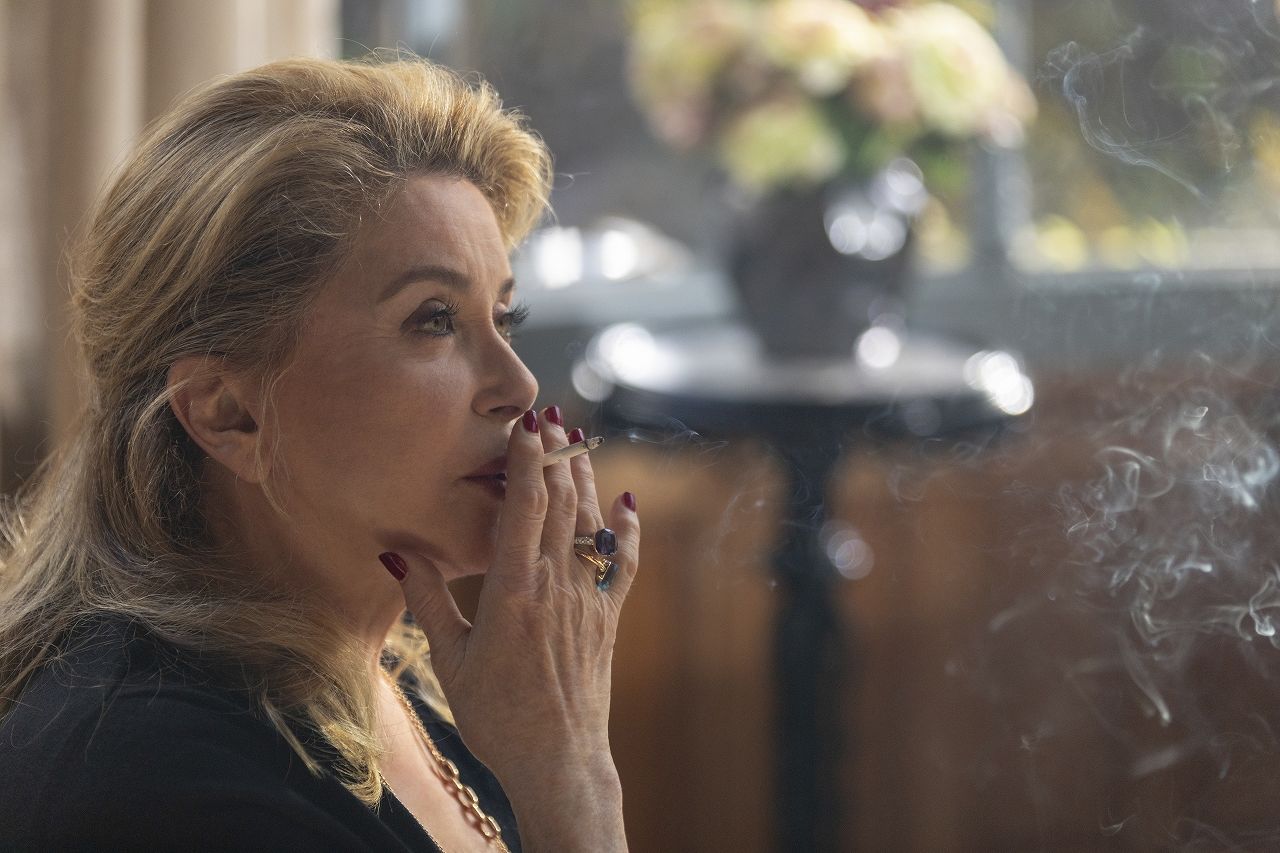
Catherine Deneuve. (photo L. Champoussin © 2019 3B-Bunbuku-MI Movies-France 3 Cinema)
INTERVIEWER The film opens with Fabienne being interviewed about her new autobiography, a scene that lays bare the personality of the great star. How much of this draws on conversations you had with Deneuve?
KOREEDA In the film, the journalist asks Fabienne whether she sees evidence of her DNA in other actresses, and she answers: “Not in France.” That’s a line I took directly from my interviews with Deneuve. In the actual interview, I followed up by asking her if she thought there was anyone in other countries. Her reply: “Kate Winslet and Naomi Watts.”
Those are words that only a person like Deneuve, who has been at the forefront of French cinema for nearly 60 years and has total confidence in herself, could speak.
INTERVIEWER Fabienne believes that as long as she gives convincing performances as an actress, she is entitled to be a terrible mother and friend. What do you make of this view of the world?
MIYAMOTO It’s all right to have a few people like that—you wouldn’t want too many of them, though. I can understand that way of thinking, even though I’m normally quite reserved.
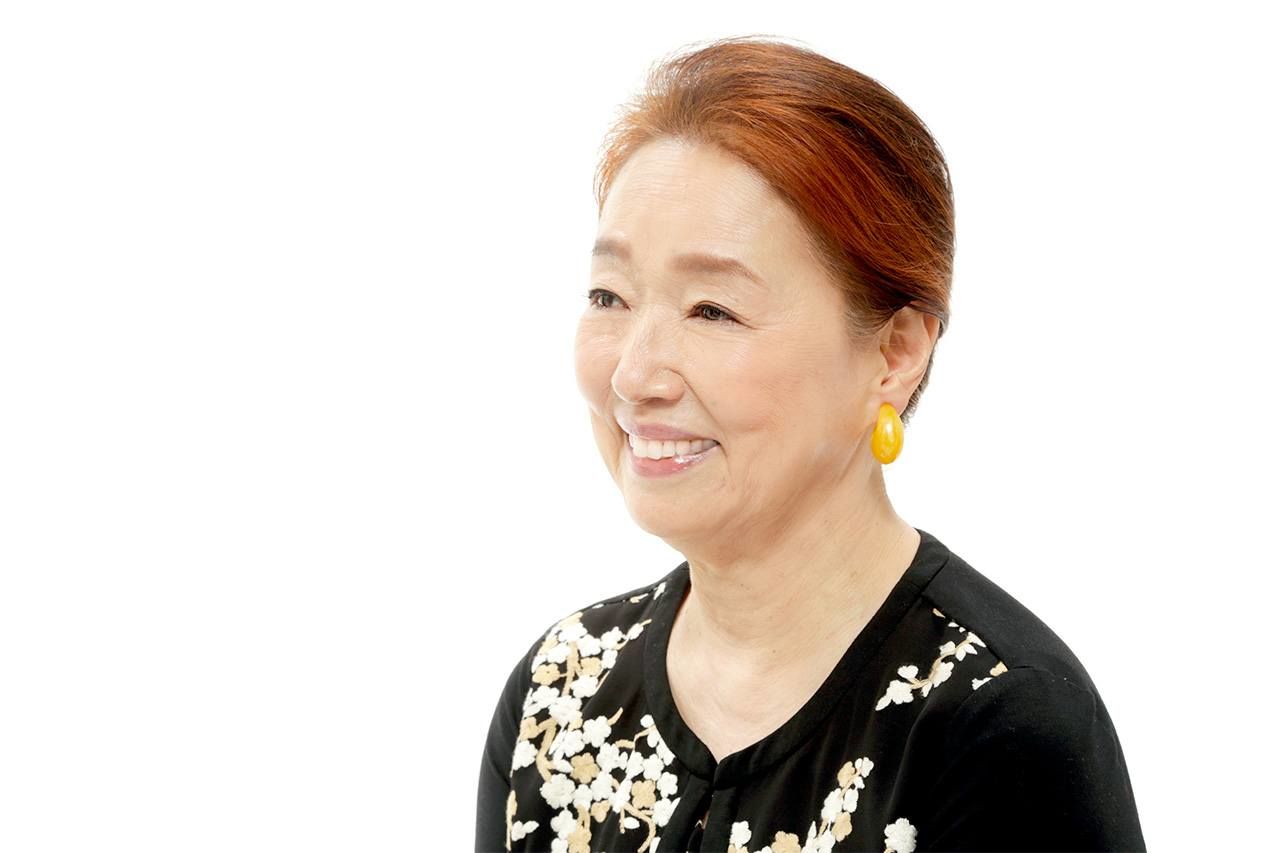
Miyamoto Nobuko, who voiced the role of Fabienne in the Japanese-language version of The Truth.
Shooting with an All-French Cast
INTERVIEWER Fabienne and Lumir have an interesting mother-daughter relationship. How was it voicing the frank way they speak to each other?
MIYAZAKI I was struck by the cultural differences. In Japan, people tend not to be so blunt. I certainly never experienced anything like it in my own life, anyway. It was a completely new and surprising way to communicate, although I was a little taken aback to think that there are really people who speak their minds so directly.
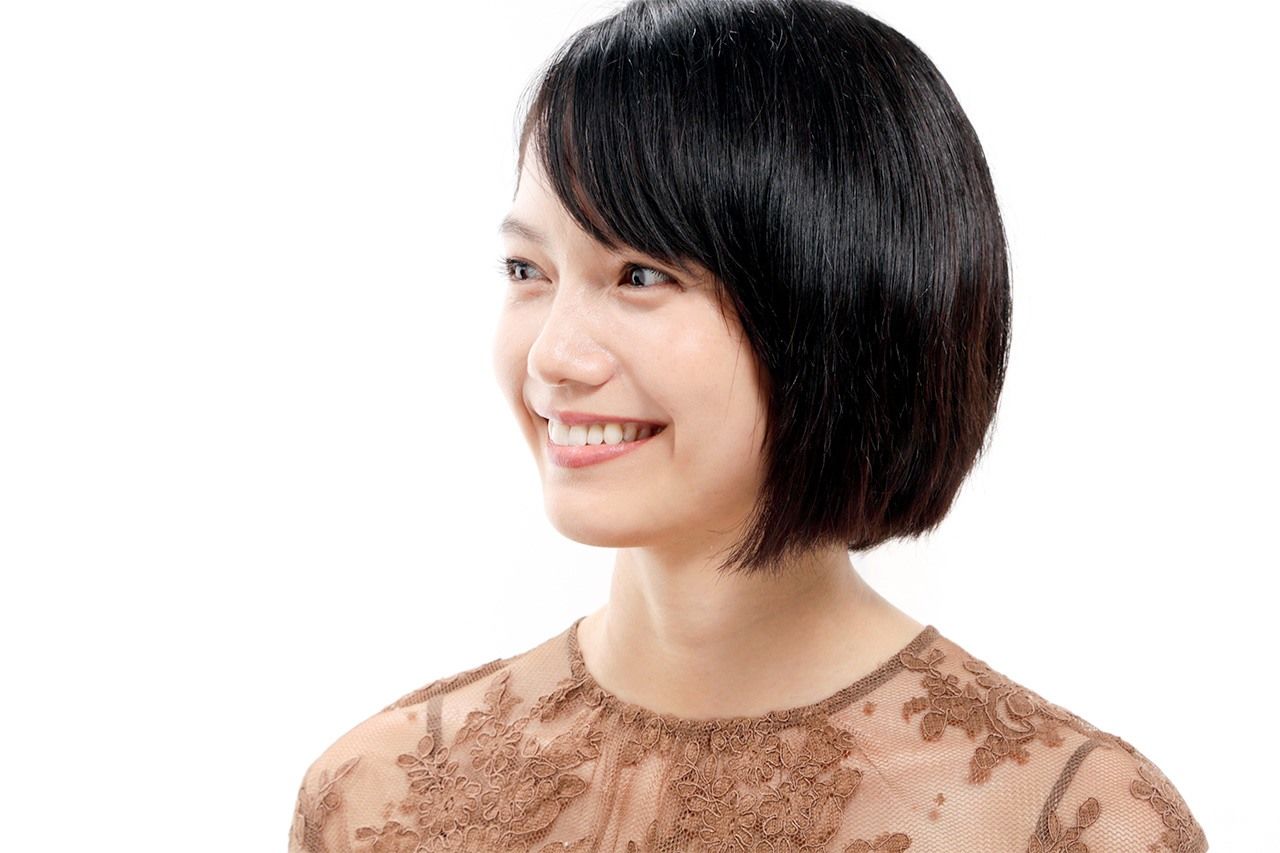
Miyazaki Aoi, who voiced the role of Lumir in the Japanese-language version of The Truth.
INTERVIEWER What aspects of the film were influenced by the French cast and crew?
KOREEDA Sometimes while shooting, a member of the team or one of the actors would come up and tell me, “A French person would do it this way.” I always tried to incorporate their advice into the scene. For example, in Japan, most couples would not sleep in the same bed while staying with their parents. But when I spoke with French people about it, they just shrugged their shoulders and seemed to think it was normal, so that’s how I filmed it. At one point Fabienne even asks her daughter Lumir, “So, how many times did you do it last night?” You’d never write lines like that in Japan, but in France, no one even batted an eye.
INTERVIEWER What did you make of Manon Clavel, who plays the young actress who is described as the second coming of Fabienne’s late rival?
MIYAMOTO I was struck by her wonderful voice. Unforgettable.
KOREEDA When she auditioned for the part, I knew she was perfect as soon as I heard her speak. I even changed the name of the character to her name, and rewrote the script to give her character the same husky voice.
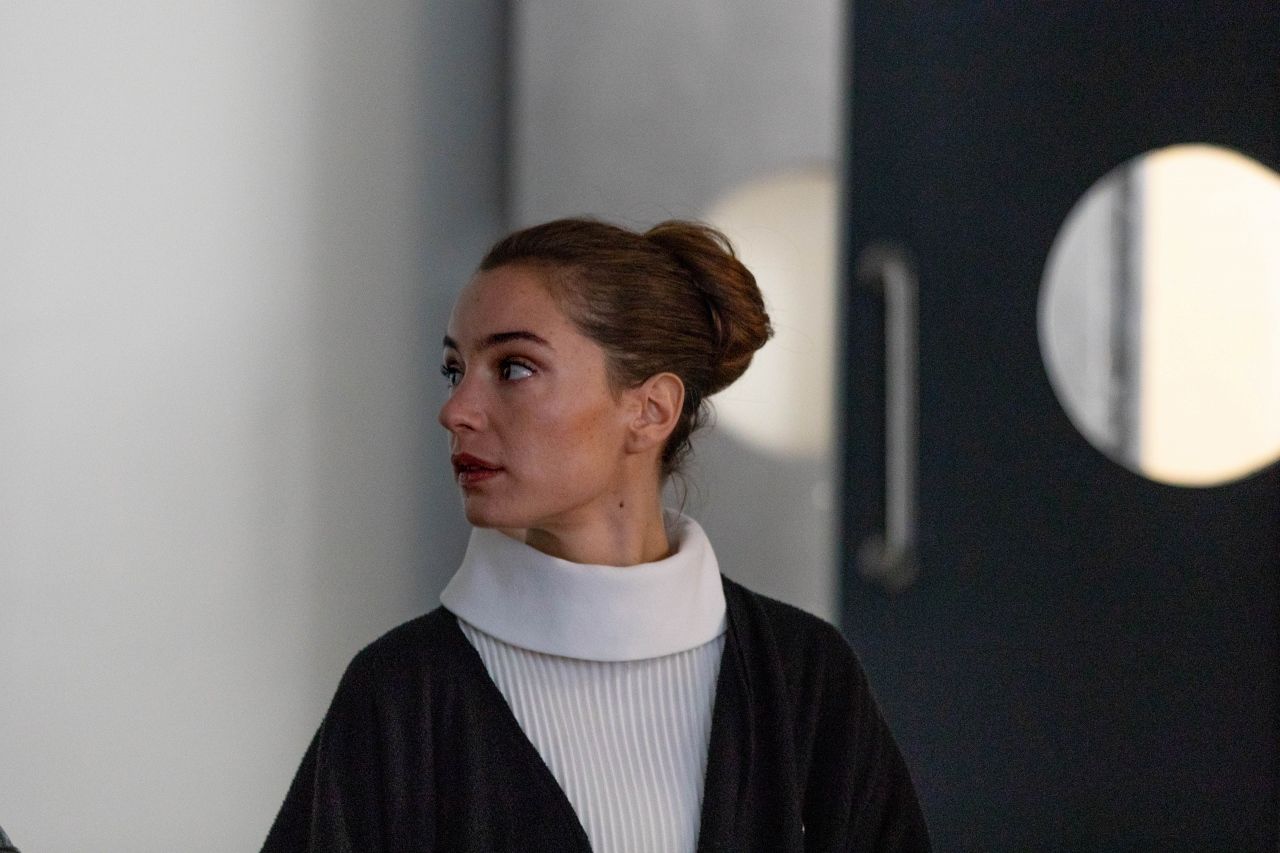
Manon, played by Manon Clavel. (photo L. Champoussin, © 3B-Bunbuku-MI Movies-France 3 Cinema)
MIYAMOTO She’s this incredibly strong presence, and she needs to be or a great actress like Fabienne wouldn’t be affected by her. I can understand the feelings Fabienne has toward this new arrival.
KOREEDA The most important thing when casting is the voices. When possible, I like to meet the actors before writing the script, so that I can get their voices in mind. Learning to write convincing dialogue in that voice is vital. We brought the actors together to read through the script, and even though I couldn’t understand the dialogue in French, it was important to hear the timbre, nuances, rhythms, and cadences of the voices. I needed to get a feel for how these women from three generations were going to sound together.
INTERVIEWER What was it like voicing the Japanese for The Truth?
MIZAZAKI I love Koreeda’s films and was thrilled to be involved. Watching the finished product in Japanese was an interesting experience. The face on the screen is Juliette Binoche, but she’s speaking with my voice, so it felt a bit strange at first, but enjoyable. Normally I watch foreign films with subtitles, but seeing a film dubbed into Japanese provides a different experience. Because I can listen to the dialogue, I am able to concentrate entirely on the expressions of the actors.
MIYAMOTO I normally watch with subtitles as well, so that I can hear the actors’ voices. In fact, I wondered if it was all right for me to be working on a dubbed version of a film. I felt an enormous sense of responsibility, but I understood Fabienne’s emotions as an actress and identified with her words in the script. Koreeda is a director who understands actresses really well, I think.
KOREEDA Actually, the dialogue in the dubbed version is closer to the original Japanese script I wrote before having it translated into French. We had to do quite a lot of pruning in the Japanese subtitles to make them fit, so the original script is quite different from what you see in the subtitles.
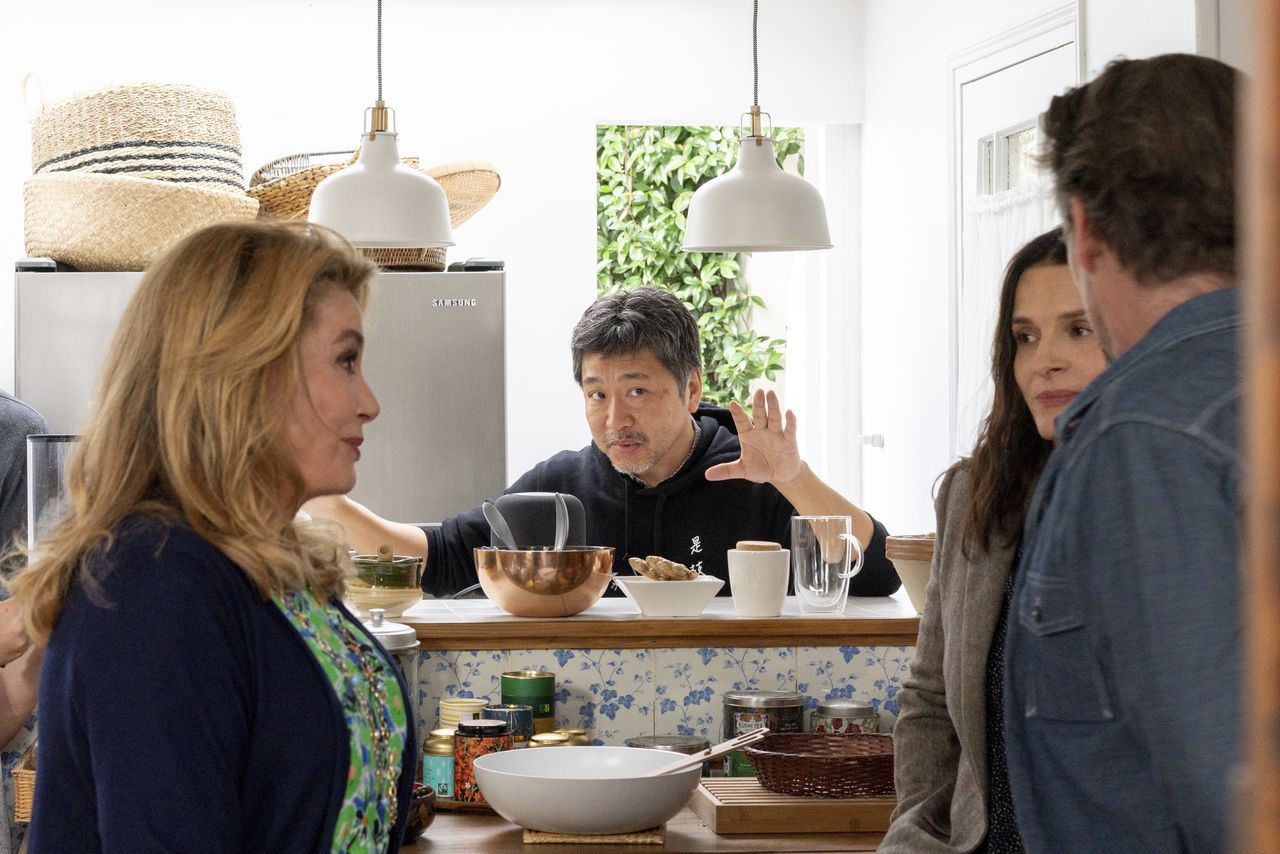
Juliette Binoche (left) and Catherine Deneuve. (photo L. Champoussin ©3B-Bunbuku-Mi Movies-FR3 Cinema)
INTERVIEWER What struck you most about working with two such global stars as Juliette Binoche and Catherine Deneuve?
KOREEDA They have very different personalities and I needed to understand and maintain a balance between them. Binoche refused to call it a day until she was completely satisfied with every scene. Even after I called a wrap, she would come over and say she wanted to do one more take. I quickly learned I had to do more to keep her satisfied. Deneuve was the opposite. “That was the one,” she’d say. “We won’t get any better than that, even if we stay here all day.” She’d make the decision before I did. And she was always right. My role was to maintain equilibrium between the two actresses, but I didn’t really need to intervene much. Working with Ethan Hawke was a great help, too. He kept things calm and moving along smoothly. I owe him a lot. Having a child actor on the set was also beneficial. As long as she was around, I knew things would somehow be fine.
(Originally published in Japanese. Interview photos by Nagasaka Yoshiki.)
